Ghana Month: Historic List Of Indigenous Coaches Of The Black Stars
We usually witness the display of talents but have we considered the managers of those talents?
In a competitive game of football, players on either side of the field and the formation to be played are selected by managers also known as coaches.
Managing a football team requires substantial knowledge of the game and for one to succeed as a coach, the person must be able to inspire and motivate players as well command discipline among them.
Coaches are the underrated heroes of the game because any tactical deficiency on the day by them will mean, their team might need a basket to collect goals to be conceded from the opposing team.
There have also been instances where a tactical substitution from a coach has won the game but mostly the playing body enjoys the most praise.
Today in our series of celebrating Ghanaian sports personalities, TGR Sports brings the list of indigenous coaches who have handled the senior national team the Black Stars at various stages since the team was established.
From the list of coaches Ghana has had to date, Here are the 13 who are Ghanaians.
1. Charles Kumi Gyamfi (1963–65, 1982–83)
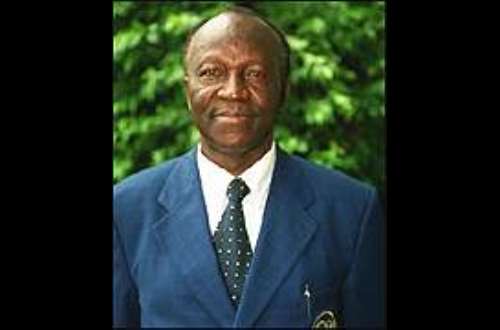
Gyamfi was born on 4th December 1929 and was the first indigenous coach of the senior national team.
After his playing days with the Black Stars between 1948 and 1961, he was handed a coaching job in 1963 and managed to qualify the nation for the African Cup of Nations and won it for the first time for Ghana on home soil.
He managed to defend the title winning it again in 1965 when Ghana beat hosts Tunisia 3-2 after extra time.
Coach Gyamfi after his second title left the scene after the military takeover of the government in 1966 but resurfaced in 1981 to qualify the team for the 82 Nations cup held in Libya.
At the tournament, he won his hat-trick of African titles and became the most successful and only coach to have conquered Africa 3 times, this record was equaled later by former Egyptian coach Hassan Shehata who won guided the Pharaohs to the title in 2006, 2008, and 2010.
C.K Gyamfi was awarded the Confederation of African Football’s ‘African Legend’ trophy posthumously in 2015 following his death on September 2 that year.
Here are the other teams he managed: Africa XI (1972), Municipal Club (1983–1984), Somalia U21 (1984), AFC Leopards (1988–1991), and Ashanti Gold (1992–1993).
2. Ben Koufie (1970–73)
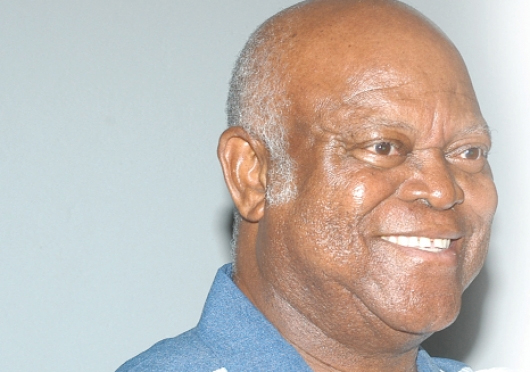
Born on 5 June 1932, Koufie was a member of the Black Stars between 1957 and 58.
After retiring as a player, Koufie became the second indigenous coach of the Ghanaian national team appointed in the year 1970, and spent three years with the team.
Even though he couldn’t win laurels for the nation during his tenure as head coach of the national team, he did manage to put the nation on the map when he managed to take Kumasi Asante Kotoko to the finals of the Africa Clubs Championship in 1971, and Accra Great Olympics to the semi-finals a year later.
He died on July 4th, 2016 at age 84.
Here are the other teams he managed: Asante Kotoko (1971), Great Olympics (1972), Africa Sports (1976–1979), Akosombo Akotex (1979–1980), and Zimbabwe (1988–1992).
3. Fred Osam-Duodu (1978–81, 1993, 2000, 2001- 03)
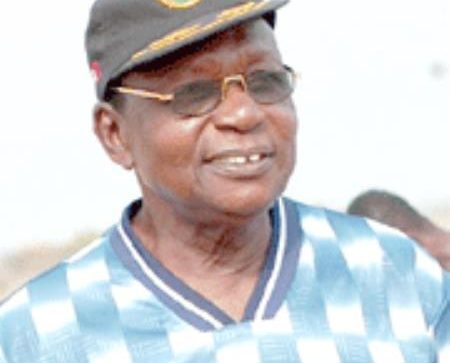
Osam-Duodu in Ghanaian football history was one who managed Ghana’s national team more times than any other coach, having five spells with the team.
Aside from the senior side, he had also been in charge of the youth side U-17 known as “Black Starlets” and the U-20 side at different times beginning from 1978 to 2007.
He won gave Ghana its third continental triumph at the 1978 Africa Cup of Nations after beating Uganda in the final 2−0 in the final match, the tournament was hosted by Ghana.
He left after three years with the team but made a return in 1993 to coach both the national team and the U-20 side which he led to victory in the 1993 African U-20 Cup of Nations and runners-up in the FIFA World Youth Championship.
In 2000, Osam Duodu made a comeback to take the reigns of the Black Stars of Ghana, but it was a very brief spell.
He returned for the last time in 2001 and coached the team for another year.
Osam-Duodu was born on 4 June 1938 and died on October 4th, 2016 in Accra.
Here are the other teams he managed: The Gambia U17 (2005)
4. Emmanuel Kwasi Afranie (1984)
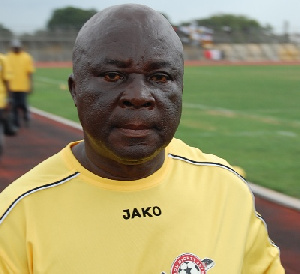
Afranie was appointed coach of the Black Stars in 1984 to replace coach C.K. Gyamfi and managed the team to the African Cup of Nations in 84 hosted by Ivory Coast.
The team failed to progress to the next stage of the competition after finishing 3rd in their group with 2 points from 3 group matches.
He was dismissed after the tournament.
In the year 2002, coach Afranie was recruited one more time to manage Ghana’s football but it was short-lived again.
Afranie was born on 24 December 1943 and died on 9 November 2016 at the age of 72.
Here are the other teams he managed: Hearts of Oak (1997), Asante Kotoko (2005-06), women’s national football team (the Black Queens) between 1998–1999.
5. Herbert Addo (1984)
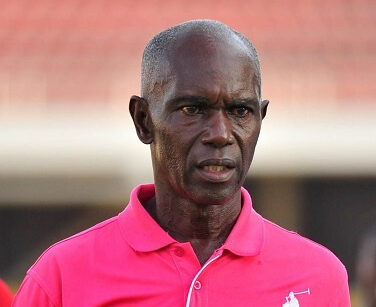
Born on 24 June 1951, Addo had a brief time with Ghana’s national team in the year 1984, taking over from his compatriot E.K Afranie.
He might not have recorded huge success stories like his predecessors but was instrumental at the local level with some clubs.
He guided Accra base Hearts of Oak to win the Ghana Premier League in 2002. He also managed the then-debutant Aduana Stars F.C. to win the league in 2010, the first time a newly promoted side had won the trophy.
Addo died on March 24, 2017.
Here are the other teams he managed: Hasaacas, Ghana FC Berlin, Asante Kotoko, Wassaman United, Ashanti Gold, and Inter Allies.
6. E.J. Aggrey-Fynn (1994)
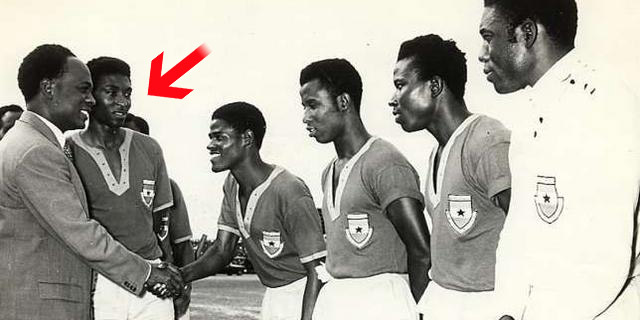
Coach Aggrey-Fynn was the skipper of the 1963 Africa Cup of Nations Ghana winning team who became a coach after retiring from football.
The former Ghana international was appointed national team coach in 1994 but his spell as the sixth indigenous coach was short-lived after his quest to win the trophy for Ghana at the Afcon in Tunisia 94 couldn’t materialize.
He was born on 24 November 1934 and died in January 2005 at age 71.
7. Sam Arday (1996–97)
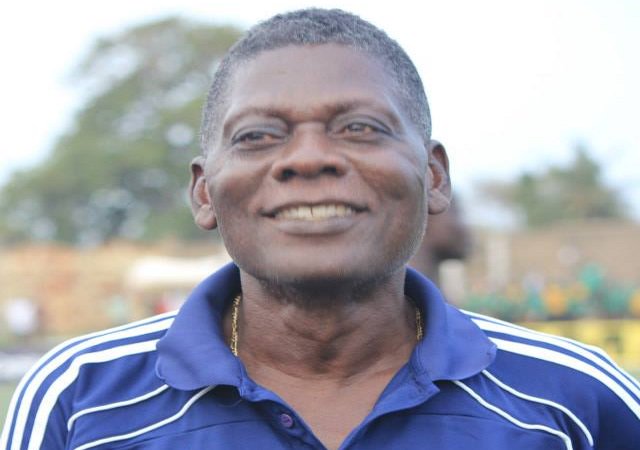
Coach Arday was first appointed head coach of the Black Stars in 1996 but spent just a year with the team.
The retired police superintendent-turned-coach was in charge of the team that represented Ghana at the African Cup of Nations in 1996 hosted by South Africa. Ghana placed fourth in that tournament.
He was the originator of the ‘multi system’ technique of football, which involved playing all attack and all defense at any given time.
Not only was he in charge of the senior team, but at some point managed some of the national teams, especially the youth sides where he won most of his titles.
He is credited as the coach who discovered one of the country’s finest strikers, Anthony Yeboah.
He won the Olympic Bronze Soccer Medal at Barcelona ’92 with Ghana’s Olympic team, the first for an African country, and another bronze medal with the U-20 side, Black Satellites at the 1991 Africa Youth Championship in Egypt beating Zambia 2:0 in the 3rd and 4th Place Match.
Coach Arday took the role as head coach of the Ghana national under-17 football team, the Black Starlets, who won the 1995 FIFA U-17 World Championship Trophy in Ecuador and the African Under-17 Championship in Mali.
He did make a return to coach the senior side in 2004 but, it was for a very brief spell.
He was born on 2 November 1945 and died in February 2017.
Here are the other teams he managed: Ghana U20 The Black Satellites (1991), Ghana U23 (1992–1997), and Ashanti Gold (2004–2005).
8. Cecil Jones Attuquayefio (2001)
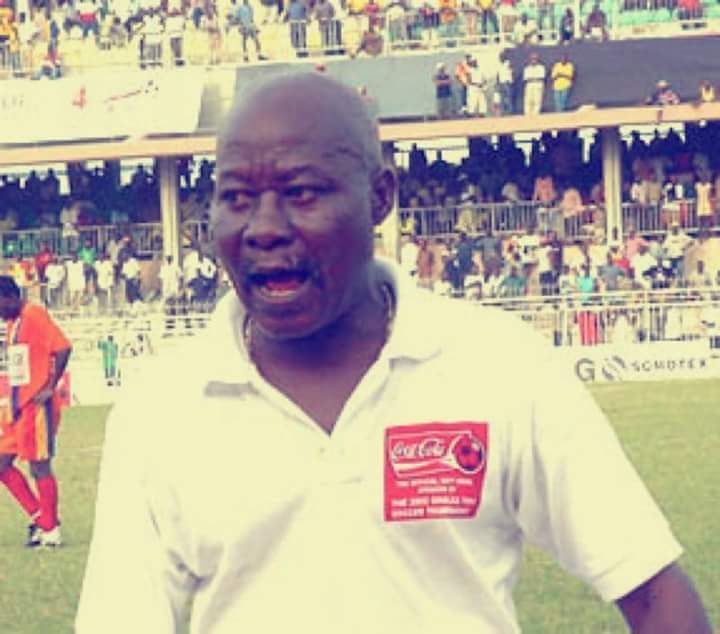
Attuquayefio was another Ghanaian coach who used to be a Black Stars player and was part of the team that won the 1965 African Nations Cup.
As a coach, Attuquayefio enjoyed more glorious times at the local level with clubs since his stay with the senior national team was brief.
His impressive show won him the African coach of the year in 2000 after his club Accra Hearts of Oak of Ghana won the African Champions league with only one loss throughout the entire tournament.
Attuquayefio was born on 18 October 1944 and died on the 12th of May 2015.
Here are the other teams he managed: Great Olympics (1974–1984), Okwawu United (1988–1989), Stade Abidjan (1989–1990), Goldfields Obuasi (1990–1993), Goldfields Academy (1993–1995 ), Ghana U-23 (1996) Ghana U-17 (1998–1999), Hearts of Oak (1998–2001 ), Liberty Professionals F.C. (2002), Benin (2003–2004), Liberty Professionals (2004)
9. Sellas Tetteh (2008)
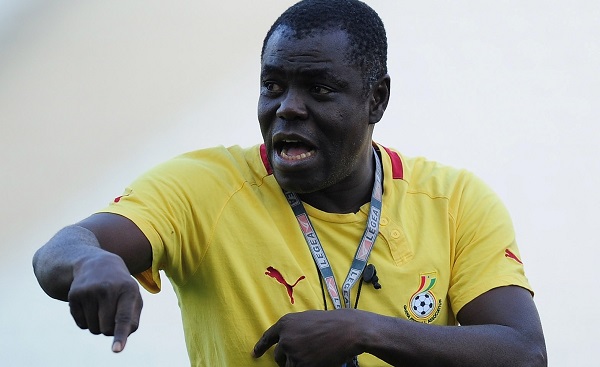
Coach Sella Tetteh came on the scene again following his retirement from football to coach the national team.
As the assistant coach of the senior national team, he was appointed as a caretaker coach in 2008 following the abrupt departure of then-head coach Claude Le Roy.
He managed the team for a while before a substantive coach was appointed later that year.
Here are the other teams he managed: Kotobabi Powerlines (1995–1996), Liberty Professionals (1996–2001), Ghana U17 (2002–2003), Ghana U23 (2003–2004), Ghana U20 (2008–2010), Liberty Professionals (2009–2010), Rwanda (2010–2011), Ghana U20 (2013–2016), Sierra Leone (2015–2017) and Sierra Leone (2019–2020).
10. Kwesi Appiah (2012-14, 2017-20)
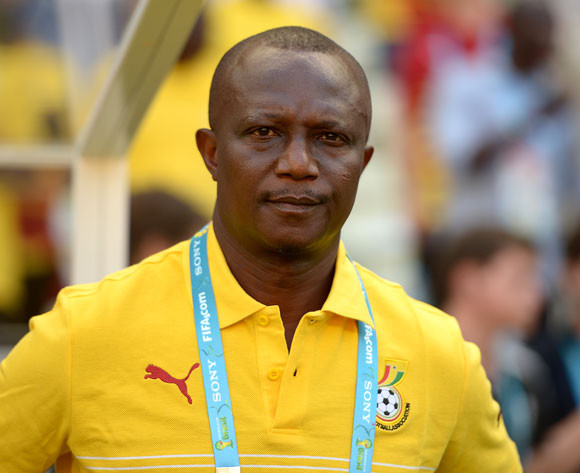
Kwesi Appiah like a few of the indigenous coaches played for the senior national team and was even the captain of the side in 1992.
He returned as a coach and was appointed in 2012 to handle the team, he became the first Ghanaian coach to qualify the country for the World Cup at the 2014 tournament in Brazil, but a group-stage exit at the tournament led to his dismissal.
Coach Appiah returned for his second stint with the Black Stars in 2017. He led the team to the 2019 AFCON, where they exited at the round of 16 stages.
The 61-year-old was not immediately sacked after the tournament but his contract wasn’t renewed when it ended in December 2019.
Here are the other teams he managed: Ghana U23 (2011), and Al Khartoum of Sudan (2014–2017).
11. Maxwell Konadu (2014, 2017)
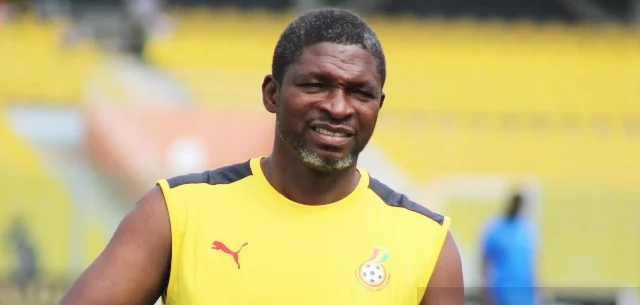
Konadu played football and was a member of the Men’s National Team that won the bronze medal at the 1992 Summer Olympics in Barcelona, Spain.
Becoming a coach, he was assistant coach of the senior national team and took over after Appiah left his position as Ghana manager by mutual consent in September 2014.
Konadu was appointed caretaker manager of Ghana’s senior national team, for the second time following the departure of coach Avram Grant, again this was shortlived as a substantive coach was appointed the same year.
He has won two WAFU Nations Cup titles for Ghana so far, in 2013 and 2017.
Here are the other teams he managed: Wa All-Stars (2009–2010), Kumasi Asante Kotoko (2011–2012), Ghana U-23 (2011) (Assistant coach), 2012–2013 Ghana (Assistant coach), Ghana U-20 (2012–2013), and Ghana U-23 (2013–2014).
12. Charles K. Akonnor (2020-2021)
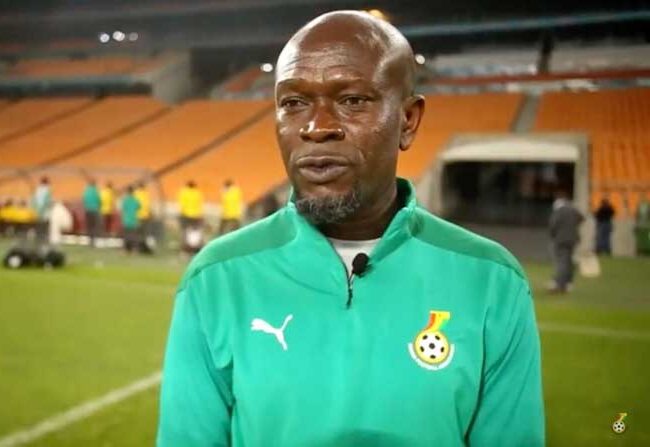
Prior to becoming coach, Charles Akonnor was a household name following his transition from youth football in the country to the senior level and just like his predecessor who captained the Black Stars.
He was first appointed assistant to head coach Kwesi Appiah but had his contract terminated in January 2020 after the GFA decided to dissolve the technical crews of the senior teams in the wake of a poor show at the 2019 AFCON, where they exited at the round of 16.
Akonnor was appointed later as a replacement for Kwesi Appiah but was fired in September 2021 following unconvincing results in World Cup qualifying matches.
In 10 matches, he had a win rate of just 40%, having won four, lost four, and two ended in a draw, his final match was a 1-0 defeat to South Africa in the 2022 World Cup qualifiers.
Here are the other teams he managed: Sekondi Wise Fighters (2009–2010), Hearts of Oak (2012 ), Ashanti Gold (2014), Ashanti Gold (2017–2018), Asante Kotoko (2018–2019)
13. Otto Addo (2022)
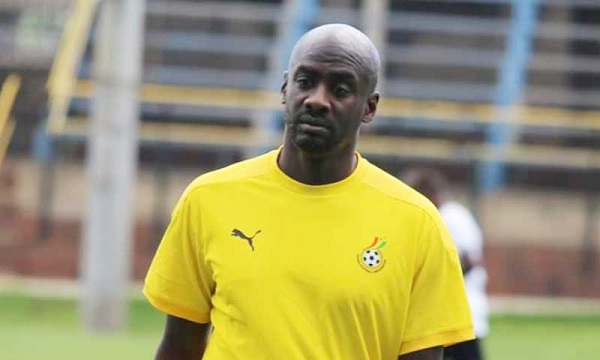
Former Black Stars midfielder Otto Addo on the 25th of September 2021 was appointed one of two deputies for the second coming of Serbian coach Milovan Rajevac.
Barely a month later, the Ghana Football Association announced that they had appointed Addo as the interim coach for the Ghana national football team ahead of the team’s 2022 FIFA World Cup final play-off matches against Nigeria.
A win against Nigeria in the playoffs with Otto Addo in charge meant Ghana had qualified for the 2022 World Cup to be hosted in Qatar.
In May 2022, he was appointed substantive head coach to manage the team at the World tournament.
Ghana, unfortunately, could not make it past the group stage of the competition after suffering two defeats against Portugal and Uruguay.
Prior to the start of the World Cup, Addo had hinted that he would be leaving after the world cup regardless of the outcome and so resigned as the head coach of Ghana after the team crashed out.
His reason was to focus on his talent coaching at the German club, Borussia Dortmund.



